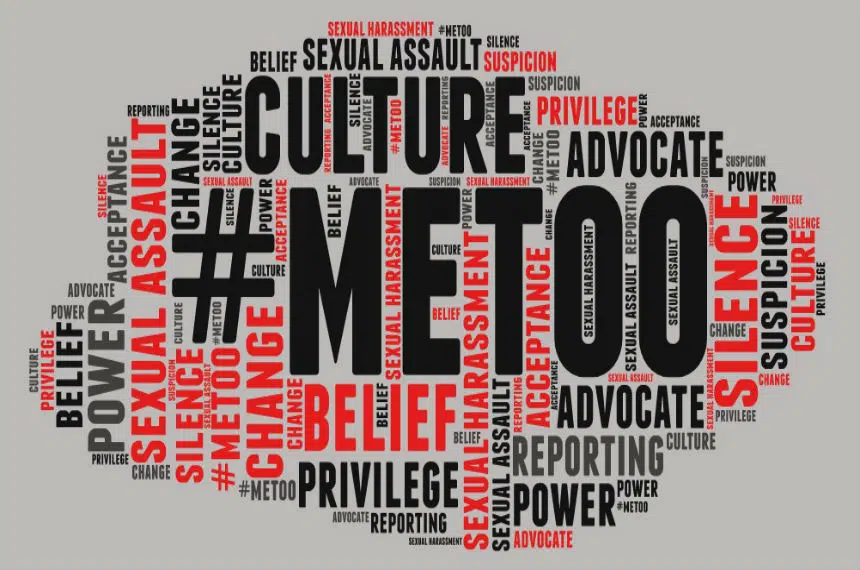Saskatchewan women’s advocates who’ve dealt with the issue of sexual assault and harassment for decades are hoping recent media scrutiny of high-profile men will be a wake-up call for change.
Jill Arnott, executive director of the Women’s Centre at the University of Regina, said while sex scandals are nothing new, this time something has changed.
“(In the past) we have been reluctant to identify what’s underneath all of this … a sort of refusal to believe women and a deep suspicion about whether women are telling the truth about their own experience and what has happened to them,” Arnott said.
She said for the first time people aren’t voicing that suspicion in the same way. Instead of questioning victims, attention has turned to the alleged abusers.
Arnott noted with the flood of accusations – and companies taking public action – it’s become harder for people to think of an incident as a “one-off,” or claim women are looking for notoriety.
It’s also shattering the myth that most sexual assaults are committed by a stranger.
“For all of these stories that we’ve been hearing, it’s not about who’s out there. It’s about your boss and your co-worker, and the people that you’re socializing with,” Arnott said.
As illustrated in the social media #metoo movement, most women know someone who has been assaulted or harassed or have experienced it themselves. In the wake of the Harvey Weinstein scandal, millions of women shared their stories online using the hashtag #metoo.
“In some ways too for men this overwhelming sort of wave of stories is triggering sort of an ‘aha’ moment about why this stuff is not romantic, this stuff is not sexy,” Arnott commented.
Arnott is quick to point out that blaming men is not the answer, especially because they can be victims too. Instead, she said it’s time to ask how people of all genders take part in a culture of silence and cover-up.
“We do have an opportunity to say, ‘what’s happening?’ Can it be that every man who has been accused is a terrible human being? Or is it possible that there’s something else afoot here?” she said.
She maintains the issue of sexual harassment is rooted in the power structure of society. Arnott suggests it is even influenced by pop culture portrayals of men pursuing women who eventually say yes if they are worn down enough.
She believes men and women often get mixed messages on what consent really means and what is not acceptable, adding violating behaviour can frequently be perceived as normal.
“I think men too have been getting lulled into this false sense of how prevalent this issue is and exactly what it looks like,” Arnott said.
The advocate hopes everyone can start to have the uncomfortable conversations that might bring about cultural change.







